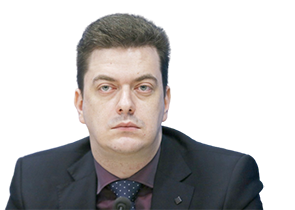The Ministry of State Security (MGB) of the unrecognized Transnistrian Moldovan republic issued a warning to it’s the Dniester’s left bank residents of possible mass riots and clashes across Moldova September 23-25.
The MGB stated that "at the moment, mass political protests are taking place in the Republic of Moldova. As a result of clashes between protesters and Moldovan law enforcers, there are casualties. On September 23-25, 2017, large-scale rallies are scheduled to be held in many cities across Moldova, which can grow into mass riots."
In this regard, the MGB of the unrecognized republic recommends that citizens take these circumstances into account and refrain from traveling to Moldova in the specified period.
Moldovan parliamentary faction of the Liberal Party, which is in opposition to president Igor Dodon, submitted a draft resolution on Dodon’s dismissal from post and setting up a referendum on the matter.
Protests are being organized by Dodon’s supporters aiming to mobilize the population against the government, which stands opposed to the openly pro-Russian president. In recent months, tensions along the president-government line have increased significantly.
In its latest defiant move, the government ignored the ban Dodon had imposed on the participation of Moldovan troops in military exercises on the territory of Ukraine under the auspices of NATO. The Moldovan parliament overruled the president's veto on several bills at once, while the presidential press service accused the government of preventing Igor Dodon from addressing the UN General Assembly. At the same time, Moldovan parliamentary faction of the Liberal Party, which is in opposition to president Igor Dodon, submitted to consideration a draft resolution on Dodon’s dismissal from post and setting up a referendum on the matter.
Under these conditions, the Moldovan president seems to be totally helpless, which obviously suits neither him personally nor the Kremlin. With the actual constitutional authority the president currently has, his chances are quite low of retaining the level of electoral support until the second half of 2018. Systemic and painful blows the government delivers reduce Dodon’s electoral positions as a representative of socialists. The fact that Dodon made an official statement claiming that the upcoming protests "will only be a prelude to the possible removal of government" indicates that he has approached a critical point, which calls for radical action. Taking into account the expected parliamentary elections in Moldova in 2018, where Dodon could use his electoral support in the presidential elections in the interests of socialists and gain control in the legislature, the shift of political struggle toward the streets testifies to the presence of external pressure on the president’s stance or to the dynamic deterioration of his positions.
Despite the assurances by the Moldovan president that the rallies are focused on the country’s regions, not the capital city of Chisinau, a scenario of force will be implemented against the Moldovan government bodies.
The situation is similar to that of January 2016, when, following a similar message from the Transnistrian foreign ministry, an attempt was made to seize the Moldovan parliament building and destabilize the country in Russia’s interests. At that time, a warning about the risks of a coup allowed Moldovan security agencies to prevent the development of such a scenario.
There is a high probability that, despite the assurances by the Moldovan president that the rallies are focused on the country’s regions, not the capital city of Chisinau, a scenario of force will be implemented against the Moldovan government bodies.
In the past few months, we have seen intensified intelligence efforts by Russia in the region and strengthening of its foreign intel station, “residentura,” in Moldova, which can indirectly indicate the preparation of a special operation. While there is yet no conclusive evidence, it is likely that "combat groups" have already been deployed in the territory of Moldova and weapons have been concealed in caches to this end. In this context, the introduction in 2014 of the Romanian and Moldovan language courses for servicemen from the Russian army’s operational group and the Russian "peacekeeping" mission in Transnistria from 2014 is another interesting nuance.
Since mid-September, Igor Dodon in his public statements has increasingly been focusing on the likelihood of bloodshed in the country and alleged attempts by pro-government forces to provoke him to resort to the use of force. These statements are designed to lay grounds for the confrontational scenario of the president of Moldova and to justify in the future the reason for supporting the coup in the country.
Anatolii Baronin, Da Vinci AG


